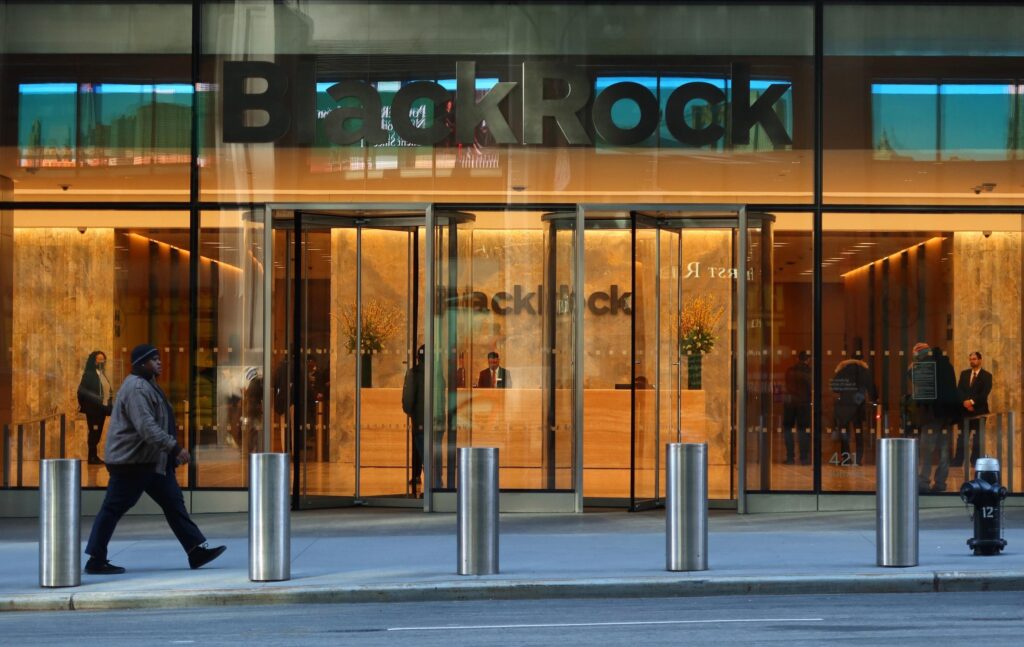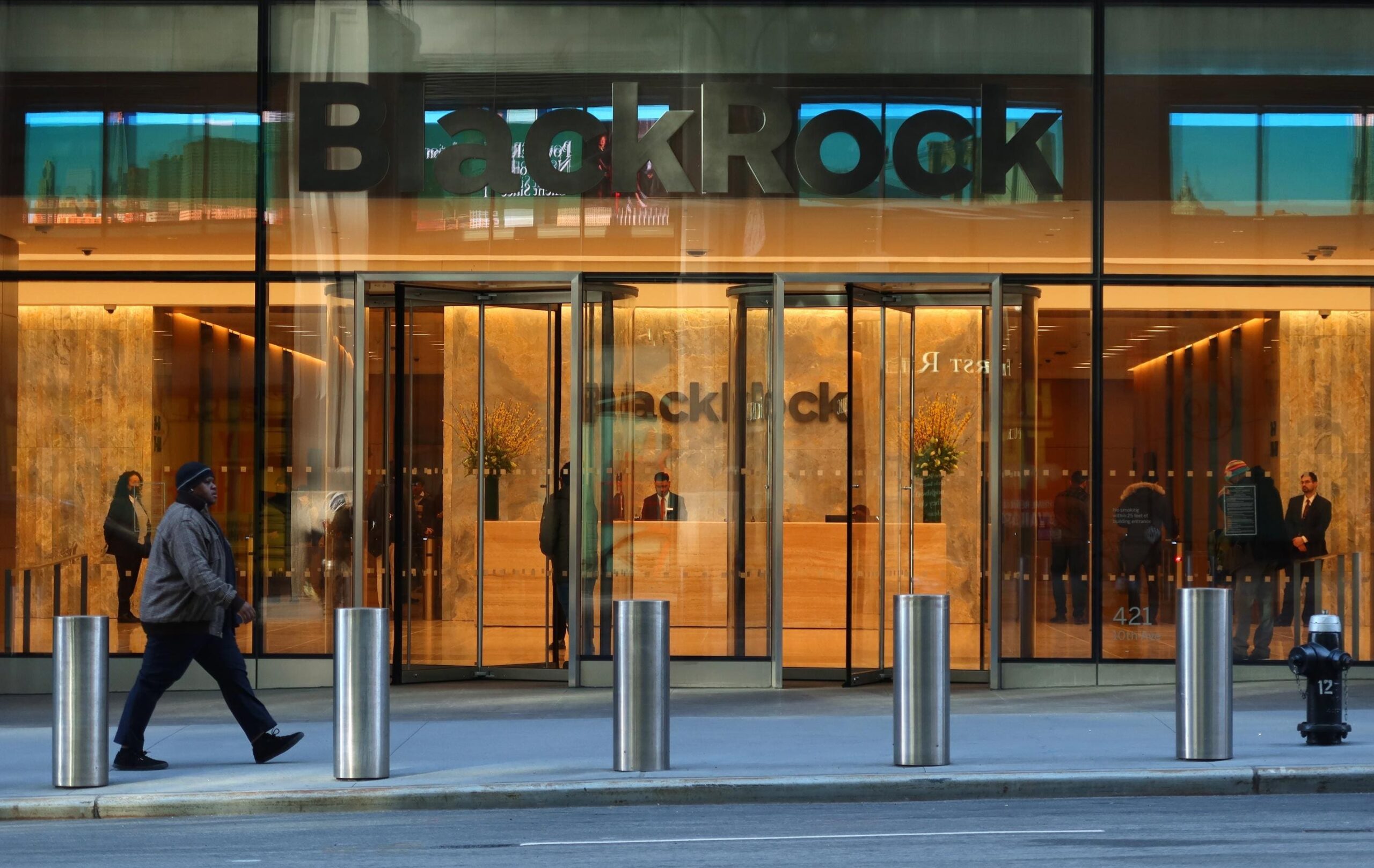The ESG Culture Wars rage on. On the investment front no asset manager has taken more incoming fire than BlackRock, the world’s largest asset management with an estimated $10.65 trillion in assets under management (AUM) as of June 30, 2024. It is taking fire from the right, such as red state legislation accusing BlackRock of boycotting fossil fuel companies. The remedy? Well, boycott BlackRock, of course and not let them manage assets for state pension funds! For example, in March of this year the Texas Permanent School Fund told BlackRock it will terminate its contract for managing around $8.5 billion.

NEW YORK, NY – MARCH 20: A person walks past the headquarters for BlackRock, an Investment management and financial services firm on March 20, 2023, in New York City. (Photo by Gary Hershorn/Getty Images) | GETTY IMAGES
But how much is BlackRock really boycotting fossil fuel companies? Facts suggest that these boycott moves are political theater based on no empirical evidence at all. BlackRock is the second largest shareholder (Vanguard is first and State Street Global Advisors is third) in the top three U.S. oil and gas companies (by market cap): ExxonMobil (market cap of $497.62 billion), Chevron ($284.22 billion), and ConocoPhillips (market cap of $130.62 billion). It also offers an iShares U.S. Oil & Gas Exploration & Production ETF (IEO) that has around $730 million in AUM. For those who want to go long on fossil fuel companies, here is a great opportunity to do so.
Adding to the irony, boycotts are proving to be damaging to the Texas economy. In their paper “Gas, Guns, and Governments: Financial Costs of Anti-ESG Policies,” Daniel Garrett and Ivan Ivanov conclude that interest costs of have increased by $300-500 million on $31.8 billion in debt due to boycotting of five banks. Building on this analysis, the Texas Association of Business and Chambers of Commerce Foundation commissioned TXP, Inc. to do further analysis. They found that the excess costs of fund raising by boycotting firms from bidding for state bonds “translates to $668.7 million in lost economic activity, value-added of $342.6 million, $180.7 million in annual earnings, 3,034 full-time, permanent jobs, and $37.1 million in State and local tax revenue.”
BlackRock is also taking fire from the left. For example, in January of this year, in an analysis of voting on 2023 shareholder proposals, the activist NGO ShareAction (“Our vision is a world where the financial system serves our planet and its people.”) asserted that BlackRock (along with Fidelity, State Street, and Vanguard) are “turning their backs on people and planet on an unprecedented scale.” In February of this year the grassroots environmental group Sierra Club (“working tirelessly to protect wildlife and wild places, ensure clean air and water for all, and fight the devastating effects of climate change”) castigated BlackRock for pulling its corporate membership in Climate Action 100+ (“an investor-led initiative to ensure the world’s largest corporate greenhouse gas emitters take appropriate action on climate change in order to mitigate financial risk and to maximize the long-term value of assets”) and transferring it to its smaller international organization.
While the right is asserting that BlackRock is trying to punish the oil and gas industry and the left believes it is not punishing it enough, both are missing the central point. BlackRock doesn’t have an agenda either way. It is not BlackRock’s job to play an industrial policy role to support the oil and gas industry. Neither is it BlackRock’s job to play a leading role in the energy transition. Rather, it has a fiduciary duty to its clients to earn the best risk-adjusted returns it can. As explained in an interview I did with Sandy Boss, then Chief Operating Officer for BlackRock’s Global Client Business, “As a fiduciary asset manager, we need to consider all the material risks and opportunities that can affect long-term value for our clients.” She also pointed out that “We care about how companies are navigating the energy transition because that can have significant implications for their business models and value.” BlackRock may decide that the fossil fuel sector should be over- or underweighted to renewables. It might decide to overweight some fossil fuel companies over others and the same with renewables companies.
SUBSCRIBE TO OUR NEWSLETTER
Subscribe our newsletter to receive the latest news, articles and exclusive podcasts every week


